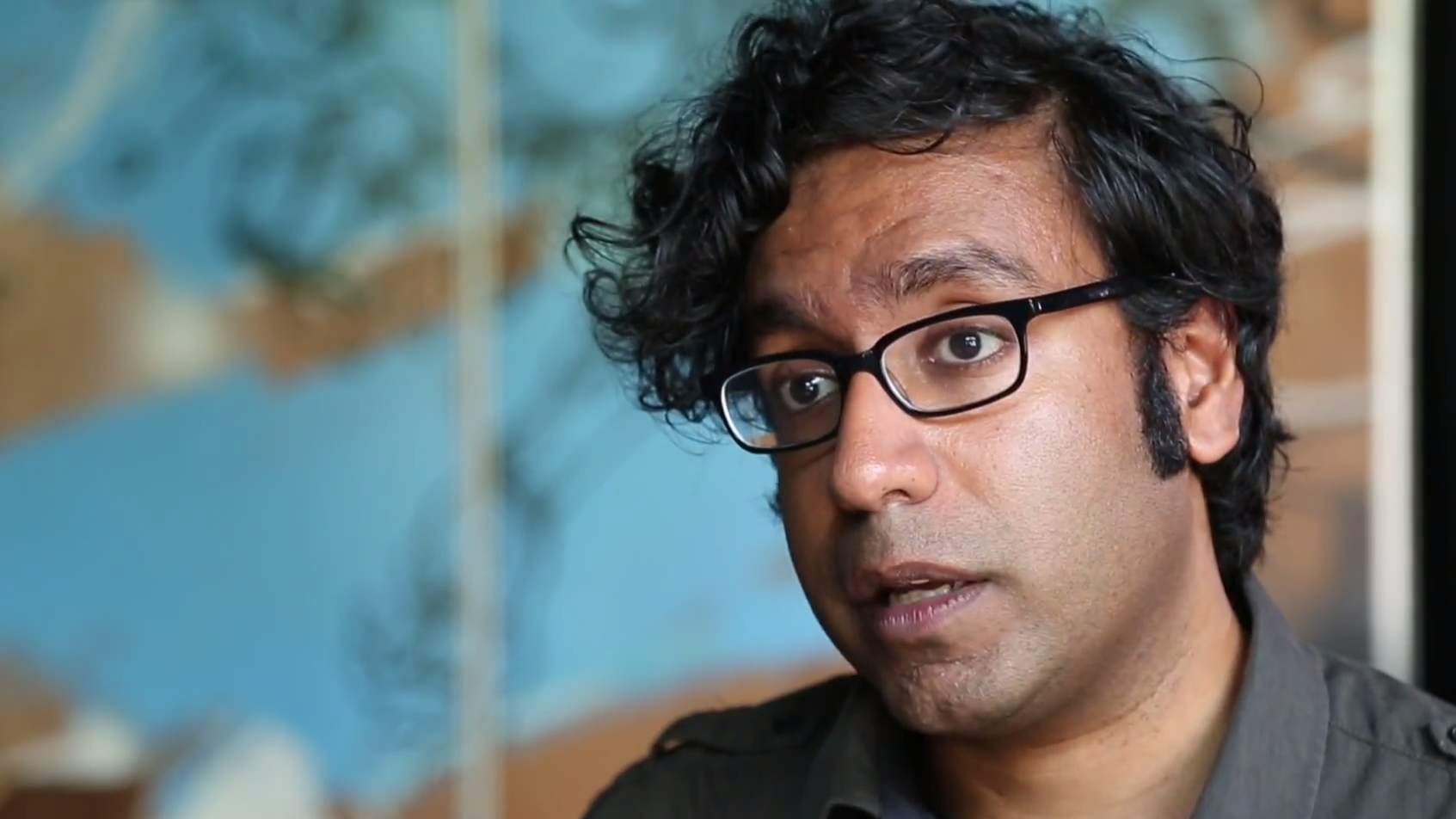Views expressed in opinion columns are the author’s own.
“Saying that I’m obsessed with race and racism in America is like saying that I’m obsessed with swimming while I’m drowning.”
When written, that line may not sound like stand-up material, but a typical Hari Kondabolu joke produces laughter while simultaneously commenting on race. He is a political comedian, but that label might do him a disservice. The term “political comedian” unfortunately often refers to white comedians who mistake controversy for activism. So when I call Kondabolu a political comedian, I don’t mean in the Bill Maher “I want to be able to say the N-word” sense, but in the Ta-Nehisi Coates New York Times Op-Ed on the N-word sense. He brings both a personal and an academic understanding of race to an art form that sorely needs it.
Kondabolu worked as an immigrant rights organizer in Seattle before he began to pursue stand-up to challenge the inequalities he saw around him. He’s gone on to write for Totally Biased, co-host Politically Re-Active and become a well-known comic. What is so important about Kondabolu’s work, besides him being a great comedian of color amid a disproportionately white landscape, is his willingness to address racism through comedy.
The culture of stand-up comedy has often rewarded jokes regardless of the damage they might do. The defense of so many racist jokes or accents has frequently been, “But it’s funny!” Kondabolu pushes back against this, pointing out earlier this year that “things can be funny and wrong. It’s not like those things are mutually exclusive. In fact, when things are racist and funny, they’re more dangerous. That’s how propaganda works.”
Kondabolu is making his voice heard with his new documentary called The Problem With Apu. The film focuses on Simpsons character Apu Nahasapeemapetilon, a stereotypical Indian character voiced by a white man. I would be quick to name The Simpsons as a favorite show and a formative comedy, as would many others. That is why The Problem With Apu is such an important film.
Kondabolu knows it is important to be critical of the things people love because they most inform our culture. The Simpsons is the perfect target for him. The show is so funny that its racism becomes even more egregious. It is easy to dismiss racist comedy that isn’t funny — few would listen to its message. But a show that’s made millions of Americans laugh for decades? Now that has power. And for Kondabolu, “everything has to be analyzed with power.”
I hope Kondabolu’s rise will allow more like him to follow. I hope when those who love comedy speak up to critique its problems, their voices will be elevated. I hope political comedy can become about real activism. For too long, comedians have shrugged off the responsibility that comes with a microphone. At the SNL 40th Anniversary show, Jerry Seinfeld was asked about the lack of black people on his sitcom. He sarcastically responded, “Good point. … We did not do all we could to cure society’s ills.”
That response demonstrates a pervasive idea in comedy: It isn’t the job of joke-tellers to address social problems. What Seinfeld does not understand is that lack of representation is a problem. Comedians do not merely comment on culture, they help define it. The Seinfelds of the world may have dominated comedy’s past, but the future belongs to those who think like Kondabolu.
Jack Lewis is a senior government and politics major. He can be reached at jlewis20@umd.edu.



